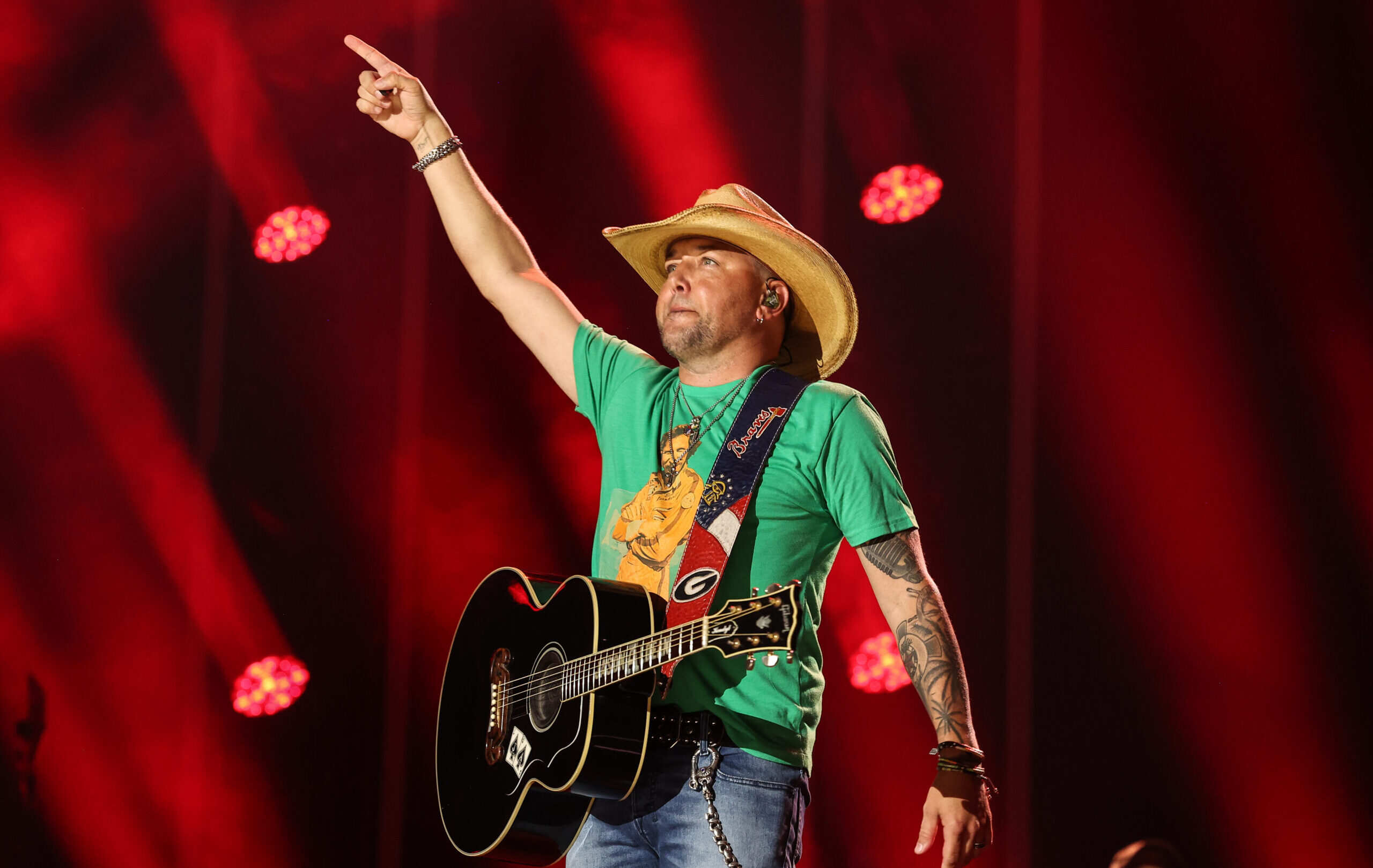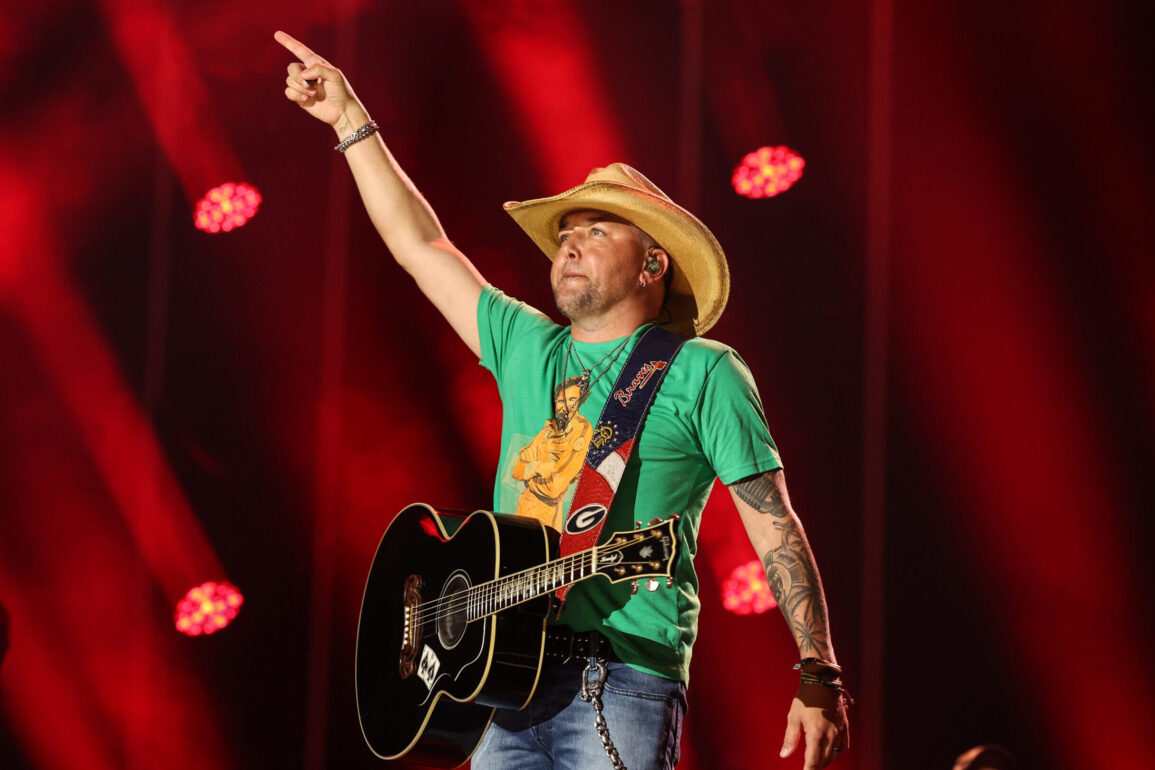
God bless country music.
Last week, we had the Washington Post attacking the success of Luke Combs’s latest single “Fast Car.” The song is a cover of the 1988 hit by Tracy Chapman, a black woman. Since Combs is a North Carolina good ol’ boy who looks the part, the success of the cover shows that country music fans are racist—or something.
This week, it’s Jason Aldean’s turn in the outrage cycle for pointing out that rioting and looting are bad. The music video for his latest single “Try That In A Small Town” dropped, and it’s fantastic. The message of the song, that lawlessness won’t fly in rural America, is dramatized against a backdrop of footage from the 2020 riots:
Predictably, Aldean, a Georgia native in a cowboy hat, was condemned as a racist for upholding law and order. Country Music Television, to its shame, pulled the video from its channel.
Now, critics may fairly point out that country music hasn’t always been so eager to denounce those who break the law. There’s a whole subgenre of “Outlaw Country,” which can claim some of Nashville’s biggest stars from throughout the decades: Willie Nelson, Johnny Cash, Waylon Jennings, and more.
There’s an important distinction, though, between the “outlaw” nature of Outlaw Country and the lawlessness of the BLM rioters. For the most part, the culture that shapes country music singers and fans views the criminal justice system as legitimate—even when those singers and fans find themselves on the business end of that system. Johnny Cash didn’t decry incarceration as systemically unjust; he performed live for the incarcerated.
Willie Nelson, who for decades has famously flaunted marijuana laws, still joined Toby Keith for a 2003 duet that echoes many of the same law-and-order themes as Aldean’s current single:
Toby :
We got too many gangsters doing dirty deeds,
Willie :
Too much corruption and crime in the streets.
Toby:
It’s time the long arm of the law put a few more in the ground.
Willie:
Send them all to their maker and he’ll settle them down.
Toby:
You can bet he’ll set them down.
This same attitude towards the criminal justice system can be seen in Cody Johnson’s 2011 single “Guilty As Can Be.” Johnson, a former Texas prison guard who is often considered to be a contemporary successor to the Outlaw Country movement, sings about a man who comes home to find his wife in bed with another man. Johnson’s protagonist reacts as one would expect, and accepts his punishment:
Well, I wish I had me a picture of what his face looked like
When I kicked in my bedroom door and raised my .45
I said, “I ain’t the kind to hurt a woman and I hope you understand
But somebody’s got to die today
Son, it looks like you’re the man”
……
And if murderin’ a man who didn’t understand
Just what she meant to me
Means I’ll rot here in this cell for eternity
Well then mister, I’m as guilty as can be, yeah
Lastly, take the recent hit duet from HARDY and Lainey Wilson, “wait in the truck”. It’s a profound narrative of vigilante justice: HARDY’s character runs across Wilson’s in the dead of night. She’s unmistakably a victim of domestic abuse, so he takes it upon himself to administer justice. He drives to the abuser’s trailer, tells Lainey’s character to wait in the truck, and murders her abuser. Lainey’s abuser clearly committed heinous crimes, and yet the protagonist still accepts his punishment at the hands of the justice system:
I didn’t try to hide my pistol
I didn’t even try to run
I just sat on the porch, smoking one of his cigarettes
And waited for the cops to come
…
It’s been 60 months and she still comes
To see me from time to time
It was worth the price, to see a brighter side
Of the girl I picked up that night
And I might be here forever
It ain’t paradise, that’s true
But it’s whole hell of a lot better
Than the place I sent him to.
Subscribe Today
Get weekly emails in your inbox
In “Try That In a Small Town,” Jason Aldean is not saying criminality doesn’t exist in rural America. Rather, he’s pointing out that chaos and disorder are not tolerated; that those who do break the law—which does still occur in small towns—are nevertheless swiftly administered justice, by a system that both prosecutors and defendants still respect as legitimate.
Country music remains one of the most popular musical formats in the country. It reminds us that a healthy respect for the legitimacy of law enforcement still exists.
Get out of cities. God bless country music.
This post was originally published on this site be sure to check out more of their content.







